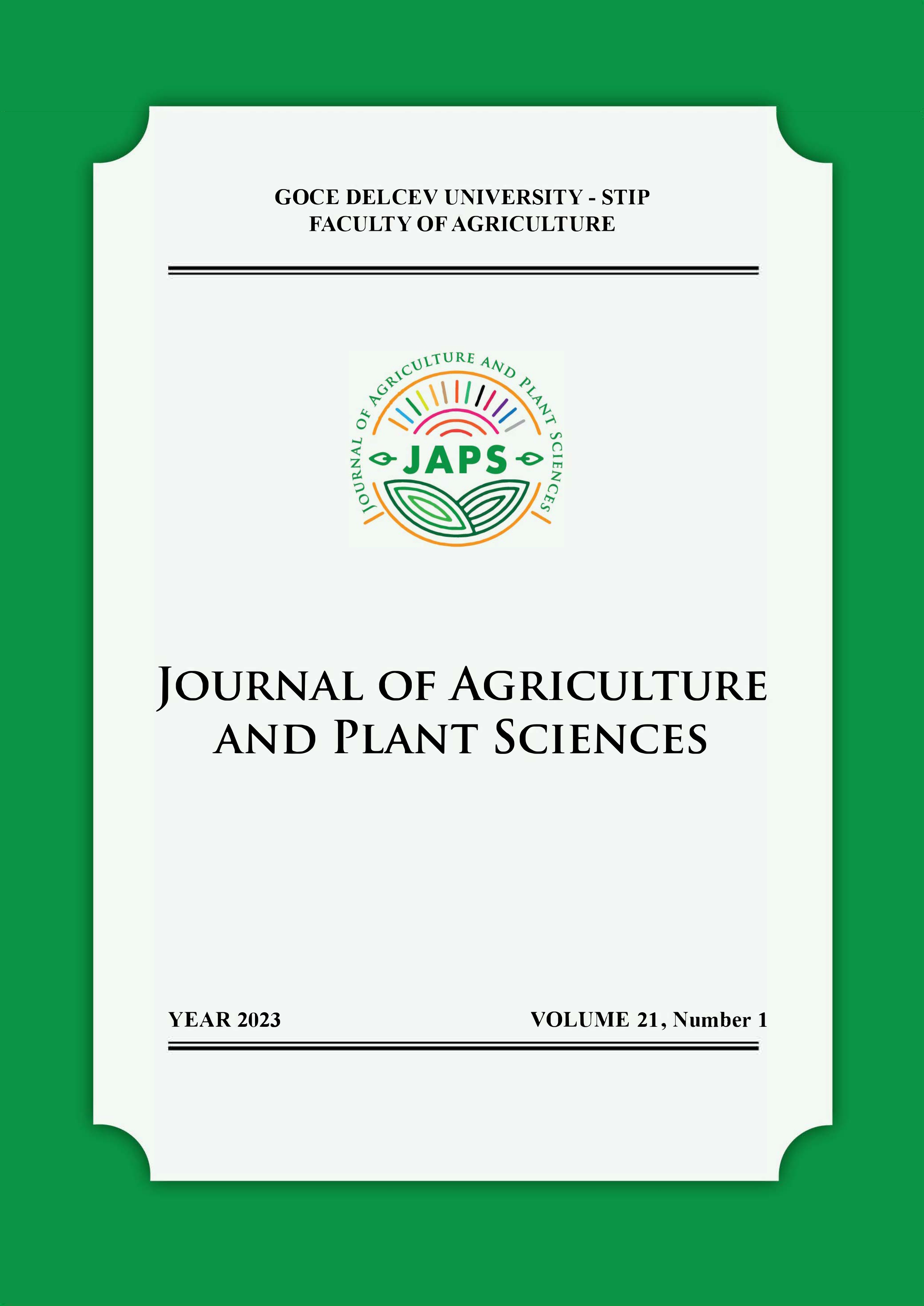ISOLATION, SCREENING AND CHARACTERIZATION OF CELLULOLYTIC BACTERIA FROM DIFFERENT SOIL SAMPLES FROM PELAGONIA REGION
DOI:
https://doi.org/10.46763/JAPS23211061kAbstract
Cellulose is the most abundant renewable natural product in the biosphere, so cellulolytic microorganisms are fundamental for the transformation of cellulose into sugars that are essential nutrients for various organisms and for biofuels. Additionally, since the annual production of cellulose is estimated at 4.0 x 107 tons, large quantities of industrial and agricultural cellulosic waste have been accumulated due to inefficient use. Different kind of soils could potentially support several microbes with potent cellulolytic enzyme activities and therefore the exploration of those communities could be useful for biotechnology as well as for ecological conservation.
The goal of this study was to conduct a survey for bacteria with cellulolytic potential, isolated from soils originating from Pelagonia Region. To select microorganisms with cellulolytic potential, qualitative cellulolytic activity was determined by culturing microorganisms in media containing cellulose as the only carbon source. After screening, fifteen colonies were isolated capable of degrading cellulase. Determination revealed the isolates were identified as Bacillus spp., Bacillus weihenstephanensis, Pseudomonas putida and Staphylococcus spp.
This study gives an overview of the potential microorganism that could be used for cellulose degradation in various biotechnological applications and for sustainable agricultural waste treatment.
Downloads
Published
Issue
Section
License
The intellectual property and copyright on the original content of all scientific contributions in the published paper shall remain with the authors. Authors give permission to the JAPS owner to publish the paper. All authors agree to publish the paper under Attribution-NonCommercial-NoDerivatives 4.0 International license (CC BY-NC-ND 4.0).


